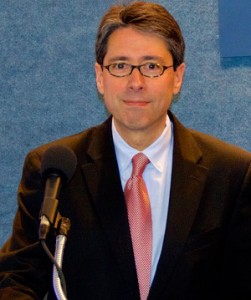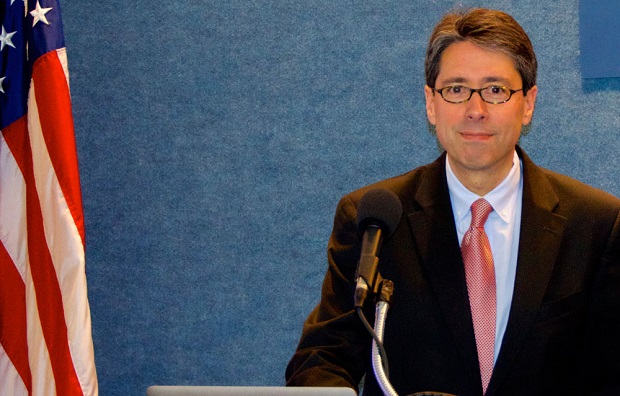As president and CEO of Mynd Analytics Inc., George C. Carpenter IV is leading the commercialization of the first diagnostic technology to enable personalized treatment of depression, PTSD, and other common disorders.
Mynd Analytics Inc. is literally turning the traditional pharmaceutical prescription model on its head. The company’s psychiatric EEG evaluation registry or PEER Online, or a cloud-based platform that allows physicians to exchange outcome data referenced to their patients’ neurophysiology.

Most mental health medications are currently prescribed through trial and error, according to the company. PEER Online compared the EEG tests results of a patient’s brain with data for similar patients stored in Mynd Analytic’s database. Through this method, physicians receive guidance from this data to determine which medicine works best with the patient.
George Carpenter has been chief executive and president of Mynd Analytics Inc. since 2009. Prior to that, he was president and CEO of WorkWell Systems Inc., a national physical medicine firm that manages occupational health programs for Fortune 500 firms. George was also chairman and CEO of Core Inc., a firm focused on integrated disability management and workforce analytics.t
Questions about George C. Carpenter
Vanguard Magazine: How did you start out in this industry and how has it brought you to where you are today?
George C. Carpenter: I’ve run health data companies for most of my career. The first was my small division of a large multinational, Baxter, which was slated to be closed or sold. We were afraid to tell our spouses that we’d all be losing our jobs, so I led a management buyout and we got to see what it’s like when “the inmates run the asylum.” We turned our money losing business into a market leader, went on the NASDAQ, and after 10 years sold to a large insurance company for 100 times what we paid Baxter. Never telling our wives? Priceless.
VM: What was your worst moment?
GCC: Best moment: our technology produced an extraordinary reduction in suicidality at two of the US military’s leading hospitals.
Worst moment: two days later, after submitting the results for publication, the military stopped the trial for undisclosed reasons. A significant safety finding in the military remains unpublished.
VM: What was your “aha” moment?
GCC: When I realized that we could publish all of our data to the cloud, like Google, sharing with researchers and physicians alike while still protecting our intellectual property. We’re now the largest clinical registry in mental health.
VM: What habit contributes to your success?
GCC: One of my habits has been always seeing the glass as half-full, all the time. I can’t help it. Many entrepreneurs I’ve met are pathologically positive, so I’ve begun to look at cheerfulness in the face of adversity as a superpower.
VM: What was the best advice you received?
GCC: A board member ran a multi-billion dollar company that forever changed medicine. He told me that the easy part was coming up with the breakthrough science or innovation. The hardest part is getting people to actually adopt the change that they’ve been asking for.
VM: What is the one thing that gets you most fired up today?
GCC: We’ve just opened our own testing facility – the Mynd Analytics Centre – and the Center broke even in its first month.
Questions about Mynd Analytics
VM: How is your organization changing the game within your industry?
GCC: We predict medication response for mental health based on quantitative EEG. Our patented product, PEER, is a practical machine learning, cloud application that is driven by a proprietary clinical outcome of over 10,000 unique patients. It’s delivered as a test (EEG) and a report (PEER) to physicians around the world.
VM: How has innovation become ingrained in your company’s culture?
GCC: Every member of the MYND team see themselves as part of a learning machine, and we get to see the outcomes on patients every day…continuous improvement is in our DNA.
VM: What technologies and trends will drive the biggest changes in your industry over the next two years?
GCC: Artificial intelligence, the next generation of machine learning, will create unique opportunities but also challenge every business. We higher primates aren’t very good at exponential change, so buckle up.
VM: What person or organization do you believe best embodies the innovation mindset?
GCC: General Electric and Honda, both early customers of mine and both dedicated to Six Sigma. They taught me what a continuous improvement culture really means.
VM: Any parting advice?
GCC: There is nothing more fun than doing something meaningful with your life and doing something that you love. The powerful resistance we often face just reminds us of the stakes we’re playing for.

